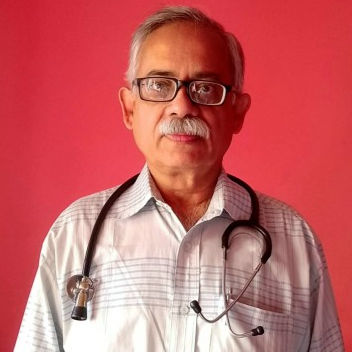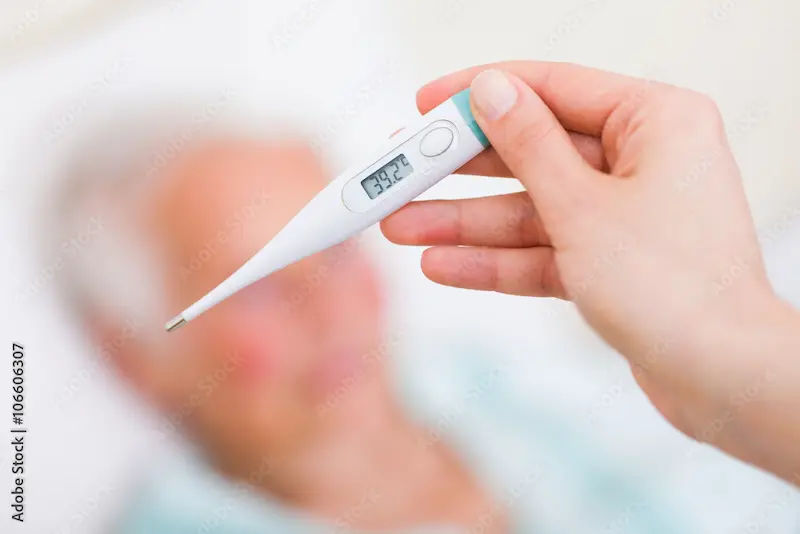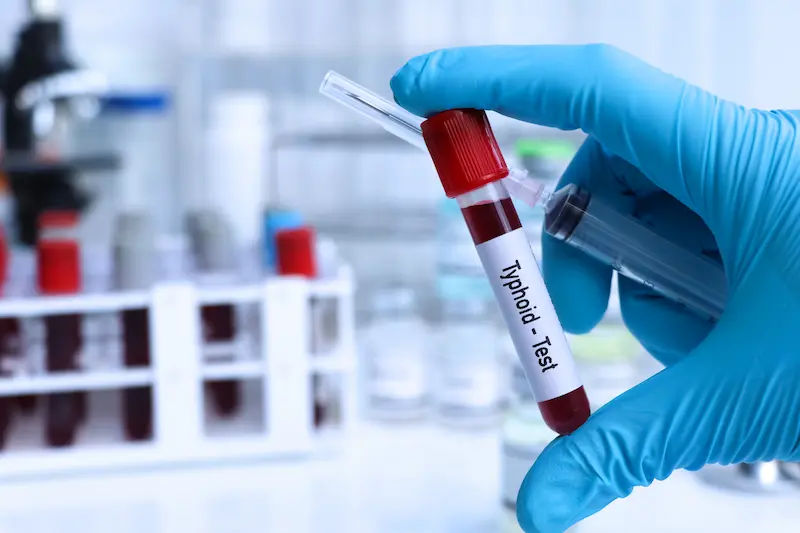Understanding Pyrexia Symptoms, Causes, and Treatment
Learn about pyrexia, its symptoms, causes, and treatment options. Understand why fever occurs and how to manage it effectively for better health.

Written by Dr. Md Yusuf Shareef
Reviewed by Dr. Rohinipriyanka Pondugula MBBS
Last updated on 13th Jan, 2026

Introduction
Pyrexia, commonly known as fever, is a condition where your body temperature rises above the normal range (98.6°F or 37°C). While a fever is often a sign that your body is fighting an infection, it can sometimes indicate other underlying health issues. Understanding pyrexia, its symptoms, causes, and treatment can help you manage it better and know when to seek medical help.
What is Pyrexia?
Pyrexia is your body’s natural response to infections, inflammation, or other illnesses. It acts as a defense mechanism, making it harder for bacteria or viruses to survive. While most fevers are harmless and resolve on their own, persistent or very high fevers may require medical attention.
Consult a General Physician for the best advice
Common Symptoms of Pyrexia
A fever is usually accompanied by other symptoms, depending on its cause. Look out for:
• Elevated body temperature (above 100.4°F or 38°C)
• Chills or shivering
• Sweating
• Headache
• Muscle aches
• Fatigue or weakness
• Loss of appetite
• Dehydration (dry mouth, reduced urination)
In children, additional signs may include irritability, lethargy, or seizures (febrile seizures in rare cases).
What Causes Pyrexia?
Fevers can result from various factors, including:
1. Infections
• Viral (common cold, flu, dengue, COVID-19)
• Bacterial (strep throat, urinary tract infections, pneumonia)
• Parasitic (malaria)
2. Inflammatory Conditions
• Rheumatoid arthritis
• Lupus
3. Heat Exhaustion or Heat Stroke
• Prolonged exposure to high temperatures
4. Medications
• Some antibiotics, antihistamines, or vaccines may cause fever as a side effect.
5. Other Causes
• Blood clots, cancer, or autoimmune disorders
When Should You See a Doctor?
While most fevers go away with rest and hydration, seek medical help if:
• Temperature exceeds 103°F (39.4°C) in adults or 100.4°F (38°C) in infants under 3 months.
• Fever lasts more than 3 days.
• You experience severe headache, stiff neck, confusion, or difficulty breathing.
• A child has a febrile seizure or is extremely lethargic.
If you’re unsure, consulting a doctor is always a good idea. You can easily book a consultation or schedule a test through Apollo 24|7 for expert advice.
How to Manage Pyrexia at Home
Home care tips for managing pyrexia include:
1. Stay Hydrated
• Drink plenty of water, herbal teas, or oral rehydration solutions.
• Avoid caffeine and alcohol, as they can cause dehydration.
2. Rest
• Your body needs energy to fight infections, so take it easy.
3. Use Fever-Reducing Medications
• Over-the-counter medicines like paracetamol (acetaminophen) or ibuprofen can help.
• Avoid aspirin for children (risk of Reye’s syndrome).
4. Cool Compresses
• Apply a damp cloth to your forehead or take a lukewarm bath to bring down the temperature.
5. Wear Light Clothing
• Avoid heavy blankets; opt for breathable fabrics.
Preventing Fever
While not all fevers can be prevented, you can reduce the risk by:
• Practicing good hygiene (washing hands frequently).
• Staying up-to-date with vaccinations.
• Avoiding close contact with sick individuals.
• Eating a balanced diet to strengthen immunity.
Final Thoughts
Pyrexia is usually a sign that your body is fighting an infection, and most cases resolve with simple care. However, persistent or high fevers should not be ignored. If you or a loved one has a fever that doesn’t improve, don’t hesitate to consult a doctor via Apollo 24|7 for proper diagnosis and treatment.
Consult a General Physician for the best advice
Consult a General Physician for the best advice

Dr. Rajib Ghose
General Physician/ Internal Medicine Specialist
25 Years • MBBS
East Midnapore
VIVEKANANDA SEBA SADAN, East Midnapore

Dr. Tamal Bhattacharyya
Pulmonology Respiratory Medicine Specialist
8 Years • MBBS, MD (Respiratory Medicine)
Kolkata
MCR SUPER SPECIALITY POLY CLINIC & PATHOLOGY, Kolkata

Dr. Swagato Podder
General Practitioner
5 Years • MBBS
Kolkata
GRD POLYCLINIC, Kolkata

Dr. Pinaki Mukhopadhyay
General Physician/ Internal Medicine Specialist
32 Years • MBBS
Kolkata
MCR SUPER SPECIALITY POLY CLINIC & PATHOLOGY, Kolkata
(25+ Patients)

Dr. Arif Ahmed
General Physician/ Internal Medicine Specialist
9 Years • MBBS, MD (Genl. Med.)
Kolkata
MCR SUPER SPECIALITY POLY CLINIC & PATHOLOGY, Kolkata
Consult a General Physician for the best advice

Dr. Rajib Ghose
General Physician/ Internal Medicine Specialist
25 Years • MBBS
East Midnapore
VIVEKANANDA SEBA SADAN, East Midnapore

Dr. Tamal Bhattacharyya
Pulmonology Respiratory Medicine Specialist
8 Years • MBBS, MD (Respiratory Medicine)
Kolkata
MCR SUPER SPECIALITY POLY CLINIC & PATHOLOGY, Kolkata

Dr. Swagato Podder
General Practitioner
5 Years • MBBS
Kolkata
GRD POLYCLINIC, Kolkata

Dr. Pinaki Mukhopadhyay
General Physician/ Internal Medicine Specialist
32 Years • MBBS
Kolkata
MCR SUPER SPECIALITY POLY CLINIC & PATHOLOGY, Kolkata
(25+ Patients)

Dr. Arif Ahmed
General Physician/ Internal Medicine Specialist
9 Years • MBBS, MD (Genl. Med.)
Kolkata
MCR SUPER SPECIALITY POLY CLINIC & PATHOLOGY, Kolkata




